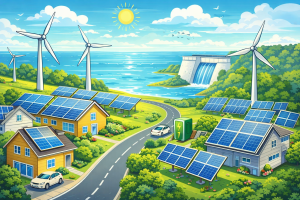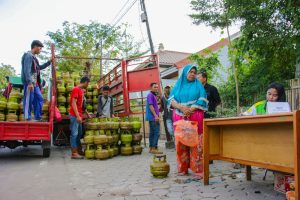Jakarta – At least 14 developing countries in Africa and Asia have limited access to energy. These countries suffer from not having access to electricity and clean cooking fuels, officials said last week. Ministry of Energy and Mineral Resources Development Agency Head of Human Resources, Energy and Mineral Resources Prahoro Yulianto Nurtjahyo, to overcome the problem, large capital injections are needed from investors.
“Globally we need an investment of around USD 30 to 35 billion per year for electricity access and USD 5 to 7 billion USD per year for access to clean cooking. In total, at least we need an investment of USD 1.4 trillion per year until 2030 for these two issues,” said Nurtjahyo in the G20 webinar series, Friday (29/4).
Furthermore, he said, the diverse landscape of problems and energy systems is a challenge for developing countries and emerging economies. Increase and expansion of energy access must adapt from the conditions and circumstances, challenges, to the capacity of the specified region.
“Effectiveness of every policy, program and action must be carried out through innovative business models and financing instruments,” Nurtjahyo added.
Options for innovative technology adoption are also necessary while taking into account the diversity of local energy sources. “Technological innovation must be supported by a better business environment and climate to create more opportunities, engage relevant stakeholders, and take advantage of the advantages of public-private partnerships,” he said.
Modern Energy Minimum Standard
Nurtjahyo emphasized that achieving access to sustainable energy must be in line with achieving a fair and equitable energy transition. “The aspect of equitable distribution of people-centered transitions can be ensured through program planning and measurable implementation in meeting the Modern Energy Minimum Standards,” he explained.
The new standard is expected to support emerging markets and developing countries, including least developed countries, to increase levels of development, meet socioeconomic needs, and create other beneficial economic opportunities for sustainable growth, including decent work and quality livelihoods.
According to Nurtjahyo, the G20 Forum is expected to have great potential to become a key factor in encouraging the achievement of energy access in action this decade. Viable economic growth and promising market prospects should be combined with innovations in business, technology and finance to stimulate further investment and international partnerships in sustainable energy access.
“We plan to strengthen recommendations, practices and experiences in sustainable energy access in strengthening the main results of the Energy Transitions Working Group (ETWG) of the G20 at the Ministerial level. Hopefully, this need can be promoted to the G20 Leaders forum as an integral part of the G20 Comprehensive Exit Strategy to Support Recovery,” he said. (Hartatik)















